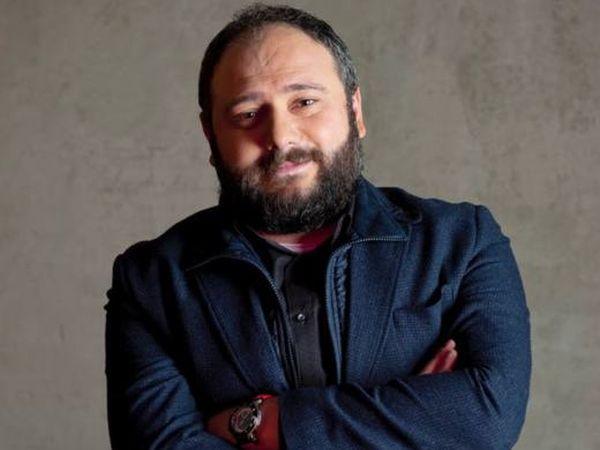2018 International Jury

Alexander Rodnyansky is one of Russia’s most important and prolific film producers having produced over 30 television series and 40 feature films including key works by some of the most accomplished filmmakers in Russian history. Born in Kiev, he began his career as a documentarian working on many acclaimed films including The Mission of Raoul Wallenberg (1990) and Last Farewell USSR (1994), which won the FIPRESCI Prize from the Yamagata International Documentary Film Festival.
Following these early successes as a director, he quickly turned his talents to producing. His earliest success was as producer on A Chef in Love (1996). Directed by Nana Dzhordzhadze, it was the first time the Asia Pacific country of Georgia received an Academy Award® nomination for Best Foreign Language Film. Rodnyansky soon followed that as producer on East-West (1999), a co-production between Russia, France, Ukraine, Bulgaria and Spain that once again earned an Academy Award® nomination for Best Foreign Language Film, this time for France. In 2009, Rodnyansky founded AR Films, he co-owns the Non-Stop Production company, and has served as the President of Russia’s leading national film festival, Kinotavr, since 2004. Alongside television series, several significant films followed: The Sun (2005) from Russian auteur Aleksandr Sokurov won awards and competed for the Golden Bear at the Berlin International Film Festival, Aleksandr Mindadze’s Innocent Saturday (2011) about the Chernobyl nuclear disaster also competed for the big prize in Berlin, and Fedor Bondarchuk’s Stalingrad (2013) was a Russian blockbuster that became the first film he produced to be selected to represent Russia at the Academy Awards®.
In 2011 he produced Elena, the first collaboration between Rodnyansky and director Andrey Zvyagintsev. Next came Leviathan (2014), which became an international sensation – it was an Academy Award® and BAFTA nominee for Best Foreign Language Film and won the same award at the Golden Globes™, along with 35 other awards from around the world. That success was followed up by Loveless, another Academy Award® and BAFTA nominee. All three won an APSA, as did Rodnyansky himself for producing Leviathan. Additionally, all won awards while in competition at the Cannes Film Festival. While he has continued to produce a blend of acclaimed Russian arthouse cinema like the award-winning documentary ¡Vivan las antípodas! (2011) and big budget fare like the IMAX-shot The Duellist (2016), Rodnyansky has also moved into American productions. He produced Jayne Mansfield’s Car (2012) for director Billy Bob Thornton, as well as Machete Kills (2013) and Robert Rodriguez’ Sin City: A Dame to Kill For (2014). He was also a co-producer on the adaptation of Cloud Atlas (2012) by the Wachowski siblings and Tom Tykwer. His most recent Russian feature, The Man Who Surprised Everyone (2018), premiered at the Venice Film Festival.
View Profile
Nurkurniati Aisyah Dewi, better known as Nia Dinata, is an award-winning Indonesian film director. Her movies are known for tackling subjects considered controversial or risky in Indonesia such as homosexuality, migrant workers and polygamy. After studying in Pennsylvania and New York City, Nia Dinata returned to her native Indonesia where she made her directorial debut with Looking for the Rainbow (1998), which was made for local television and won multiple national awards. This was followed by the ambitious undertaking of Ca-bau-kan (2002) about the tribulations of Chinese-Indonesians, adapted from a novel by Remy Sylado. The film was selected by Indonesia to represent the country in the Academy Awards’® Best Foreign Language Film category.
In 2003 she directed Arisan!, a low-budget film about LGBTQ issues that became a surprise success with over 500,000 admissions. The success led to her being invited to join the Cannes Young Directors program in 2004 and then she produced Joko Anwar’s award-winning Joni’s Promise followed by another of her own films, Love for Share about polygamy in Indonesia. This film became her second to be submitted to the Oscars®. Producing Quickie Express and Chants of Lotus soon followed, as did a sequel to Arisan! in 2011. Her most recent film as director was 2016’s musical drama Three Sassy Sisters.
View Profile
Vladimer Katcharava graduated from Tbilisi State Film and Theater University 2001 and has become one of Georgia’s most prominent producers of feature-length and short films. In 2010 he founded his company 20 Steps Productions with the goal of contributing to the development of Georgia’s film industry, focusing on development and co-production of independent feature and animation films that will appeal to both domestic and international audiences. Katcharava is an alumnus of the 2010 Berlin Talent Campus and has attended the 2015 Sundance Script Lab, the Cannes Film Festival’s Producers on the Move in 2012, the 2011 EAVE Producers Workshop and the 2010 East European Film Alliance.
In 2013, Katcharava worked with Georgian first-time filmmaker Mariam Khatchvani on the short film Dinola, which won several awards. The pair’s second collaboration, Dede (2017), proved to be another success, winning ten international awards including the Cultural Diversity Award under the patronage of UNESCO at the 2017 APSA ceremony. At the same ceremony, Katcharava was selected as a recipient of the MPA APSA Academy Film Fund from over 100 submissions. In 2018 he also co-produced Eva Husson’s Girls of the Sun starring Golshifteh Farahani, which premiered at the Cannes Film Festival and competed for the Palme d’Or.
View Profile
Deepak Rauniyar was born in Saptari, Nepal, and worked as a teacher, a print journalist, radio correspondent, and as a writer and producer for the BBC Media Action where he wrote, directed and produced radio dramas and short films before eventually making his feature film debut with Highway (2012). Besides directing the micro budget feature, he also produced and edited. The film premiered at the 62nd Berlin International Film Festival, the first time any Nepali film had ever screened at a major international festival. It was nominated for Berlin’s Best First Feature Award and was selected to open the Museum of Modern Art in New York’s ContemporAsian series in 2013. In his own country, the social drama provoked a tumultuous response due to its realistic characters and their taboo-shrouded issues.
In 2016, Rauniyar returned with White Sun, his second feature about life in post-war Nepal, which he co-wrote, directed and produced. The film was a major international success after receiving its world premiere at the Venice Film Festival. In addition to winning Venice’s InterFilm Award, White Sun won Best Asian Feature at the Singapore International Film Festival, Grand Jury Prize at Palm Spring International Film Festival and four awards including Audience Award at the Fribourg International Film Festival. White Sun was Nepal’s official selection for the Academy Awards’® Best Foreign Language Film category in 2017.
View Profile
Antonia Zegers is a prominent Chilean actress, with a vast career in film, theatre and television. She studied at the theatre school of Gustavo Meza. She has participated in plays such as Brecht’s Auge y Caída de la Ciudad de Mahagonny and collaborated with the Chilean playwright and director Ramón Griffero for many years. In television she was part of the stable cast of the National Television of Chile for ten years, participating in prominent national series such as Romané, The Circus of the Montini, The Pincheira and Pampa Illusión among many others. In 2012, she participated in the HBO TV series Prófugos.
In cinema she has acted in Post Mortem (2010), The Club (2015) and the Oscar®-nominated No (2012), all directed by Pablo Larraín. Her work on The Club received multiple nominations and awards including from The Premios Platino Awards and the Fenix Film Awards. She also took part in the movies Sábado (2003) and La Vida de los Peces (2010) by director Matías Bize. For Los Perros (2017) by Marcela Said, which premiered in 2017 at the Critics’ Week in Cannes, Zegers was awarded Best Actress at the Stockholm Film Festival. She most recently appeared in Sebastián Lelio’s A Fantastic Woman, which won the Academy Award® for Best Foreign Language Film in 2018, Chile’s first.
View ProfileThe Asia Pacific Screen Academy expresses its respect for and acknowledgement of the South East Queensland Aboriginal and Torres Strait Islander communities. We pay our respects to the Traditional Owners of country, including the custodial communities on whose land works are created and celebrated by the Asia Pacific Screen Awards. We acknowledge the continuing connection to land, waters and communities. We also pay our respects to Elders, past and present. We recognise the integral role Aboriginal and Torres Strait Islander and First Nations peoples continue to play in storytelling and celebration spaces.
